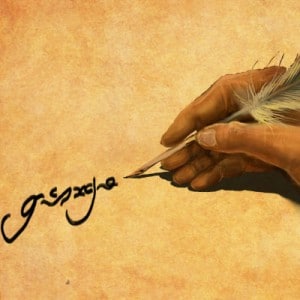 Following Anne Boleyn’s departure from court, her brother George was brought in to face the same hostile jury. He was, of course, prejudiced by his sister’s conviction because she had been found guilty of incest with him and of conspiring to kill the King with him, but he still put up a spirited defence. So good was George’s performance in court that Lancelot de Carles wrote “one never saw a man respond better/No not even More, who had such an abundance/of eloquence and knowledge” and Eustace Chapuys reported “To all he replied so well that several of those present wagered 10 to 1 that he would be acquitted, especially as no witnesses were produced against either him or her, as is usual to do, particularly when the accused denies the charge.”
Following Anne Boleyn’s departure from court, her brother George was brought in to face the same hostile jury. He was, of course, prejudiced by his sister’s conviction because she had been found guilty of incest with him and of conspiring to kill the King with him, but he still put up a spirited defence. So good was George’s performance in court that Lancelot de Carles wrote “one never saw a man respond better/No not even More, who had such an abundance/of eloquence and knowledge” and Eustace Chapuys reported “To all he replied so well that several of those present wagered 10 to 1 that he would be acquitted, especially as no witnesses were produced against either him or her, as is usual to do, particularly when the accused denies the charge.”
It was no use and George must have been well aware of the futility of his defence. When he was handed a note regarding his wife and sister discussing the King’s alleged sexual problems, George recklessly read it aloud even though he had been commanded not to. Chapuys recorded this incident in a letter to Charles V:
“I must not omit, that among other things charged against him as a crime was, that his sister had told his wife that the King ‘nestoit habile en cas de soy copuler avec femme, et quil navoit ne vertu ne puissance.’ This he was not openly charged with, but it was shown him in writing, with a warning not to repeat it. But he immediately declared the matter, in great contempt of Cromwell and some others, saying he would not in this point arouse any suspicion which might prejudice the King’s issue. He was also charged with having spread reports which called in question whether his sister’s daughter was the King’s child.”
Not only had George joked or gossiped about the King’s sexual problems, his lack of sexual prowess, he had also allegedly joked about Elizabeth not being the King’s daughter. This meant that he had unwittingly committed treason because this kind of talk impugned the King’s issue. The action of reading the note aloud is often seen as arrogance and rebellion, and Clare Cherry and I discuss this in our book on George:
“But George’s recklessness was not mere arrogance, as is so often suggested. It actually exemplified his intelligence and linguistic skills. Chapuys says that George was referring to any future issue the King may have produced from any subsequent marriage, thereby effectively bringing out into the open the likelihood of the King’s imminent remarriage, and the real reason for the trial. But George may also have spoken out in an attempt to protect his niece, the future Queen Elizabeth, from any subsequent rumours relating to her paternity. The fact that the issue was raised at all shows that gossip regarding the King’s virility was circulating. Although George read the allegation out loud, he did not admit it was true.”
As Chapuys notes, no evidence regarding the charge of incest was produced “except that of his having once passed many hours in her company, and other little follies” and all evidence for the other charges was hearsay, no witnesses were produced. However, a unanimous verdict of George’s guilt was delivered by all 25 peers who sat on the jury and George was sentenced to death:
“That he should go again to prison in the Tower from whence he came, and to be drawn from the said Tower of London through the City of London to the place of execution called Tyburne, and there to be hanged, being alive cut down, and then his members cut off and his bowels taken out of his body and brent [burned] before him, and then his head cut off and his body to be divided into 4 pieces, and his head and body to be set at such places as the King should assign.”